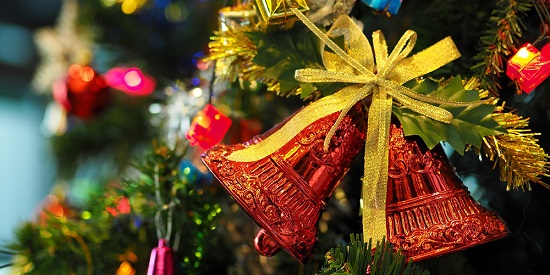Deck shops with boughs of holly and shoppers forgive bad service: Deakin research
Media release
Christmas decorations encourage Christian-raised shoppers to be more forgiving of poor service, according to research from Deakin's Business School.
Deakin Business School marketing researchers Dr Joshua Newton and Dr Riza Casidy, along with Singapore University of Social Sciences' Dr Jimmy Wong, discovered the effect after undertaking seven experiments with more than 1500 participants in the United States.
The team found popular Christmas decorations activated religious beliefs among consumers with a Christian upbringing, causing them to be more forgiving of "service failures" – instances when service delivery doesn't meet a customer’s expectations.
However the Christmas stimuli also served as a double-edged sword for businesses, as the researchers found the same Christian-raised shoppers experienced a heightened sense of social injustice if they observed vulnerable members of the community being subjected to poor customer service.
Dr Newton said decorative or seemingly incidental features such as background music, scent or store ambience could influence how consumers evaluated service encounters.
"Symbols associated with seasonal religious festivals such as Christmas can serve more than just a decorative function," he said.
"Some Christmas symbols such as nativity scenes, stars and angels draw on Christian imagery, while others such as pine trees and holly have more pagan or secular origins. But by virtue of their strong connection to Christmas, they've all become infused with a shared set of meanings for those with a Christian upbringing.
"In the presence of such symbols, individuals soften their evaluations of a personally experienced service failure encounter. We believe this exposure to Christmas symbols may activate beliefs associated with Christianity, influencing customers' readiness to forgive instances of poor customer service."
Christians of various denominations make up the largest reported religious group in Australia (57.7 per cent), according to the most recent figures from the Australia Bureau of Statistics.
Dr Newton said few religious symbols rivalled those of the festival of Christmas in the way they had permeated the public sphere.
"This could potentially transform our understanding of how religion influences customer service interactions and post-service failure outcomes," he said.
"Our findings suggest that religiously infused beliefs can be deliberately activated through the strategic use and placement of religious festival symbols.
"While Christmas symbols don't turn a neutral service experience into a positive one, they have been shown to lessen the impact of negative customer service interactions."
But Dr Newton said managers should exercise caution before they deck the aisles with boughs of holly.
"Among those with a Christian upbringing, the mere presence of Christmas decorations was enough to activate religiosity and soften certain customer service interactions," he said.
"However, witnessing a service failure directed towards a vulnerable person actually increases service dissatisfaction.
"For example, if they saw a staff member being rude to an elderly customer, those same forgiving people were more likely to warn others about the business or switch to alternative service providers.
"This goes to show that symbols associated with religious festivals such as Christmas can be a double-edged sword. On the one hand, they soften how we evaluate bad service that we personally receive. On the other, they harden our evaluations of bad service that we see being directed towards vulnerable members of the community."
Dr Newton said the findings highlighted previously unexplored factors that could subtly influence how customers evaluate bad service.
The full research paper, "Deck the Halls with Boughs of Holly to Soften Evaluations of Service Failure", has been published in the Journal of Service Research.

